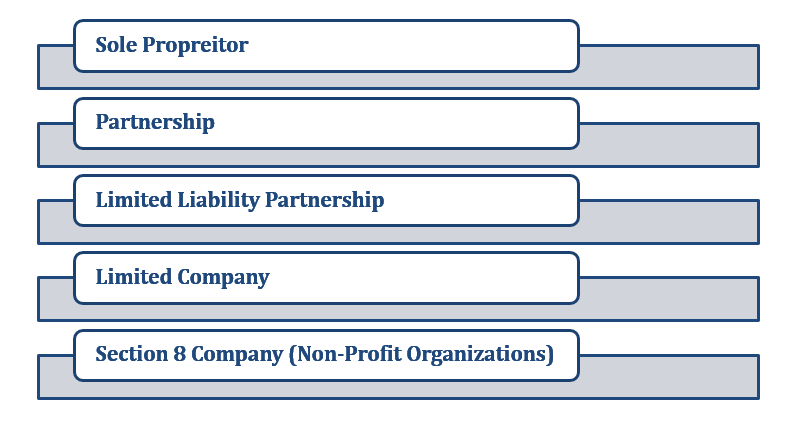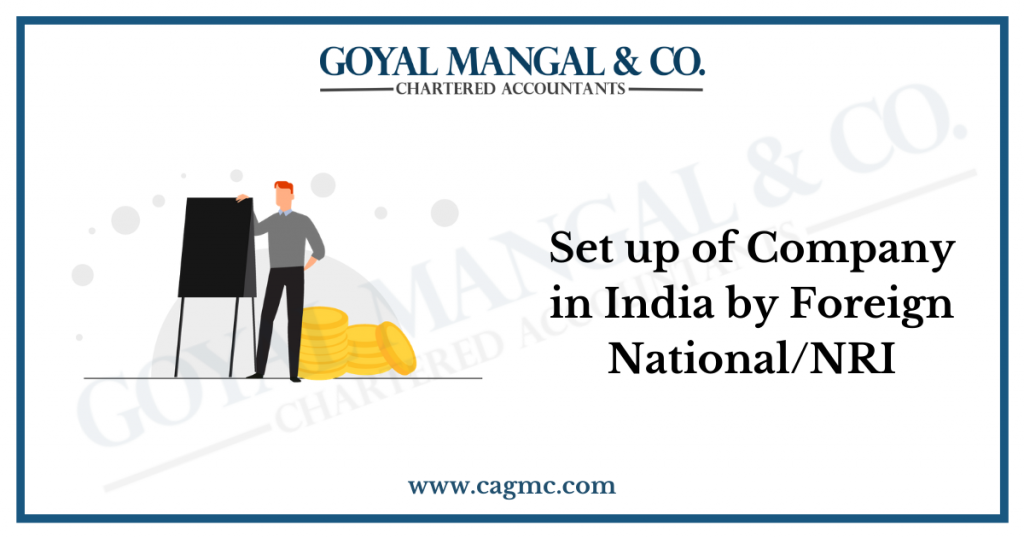
When an individual chooses to start a business, the most important decision is to select the structure of the business. Facts such as taxes, the liability of an individual, or how to raise fund depends on the structure. Before starting the business and selecting the structure the business owner should take advice from the expert, see all the pros and cons of various business entities. After considering all the points the best structure opted to start the business.
| TABLE OF CONTENT |
Various types of Business Structure in India

- Sole Proprietor: In this, the owner himself will run the business and will take all the decisions of the business. All the profits and losses will be suffered by the owner. This structure is most common which is used in India. There is no legal formality for starting and winding up of the business. All the debts in the business will belong to the owner alone as there is no other member in such structure. Personal assets and business assets are the same and can use it for clearing the debt of the business.
- Partnership: A partnership is a form of business where two or more individuals come together to form a business. In this type of business, all the profits and losses are shared as per the agreed ratio. Before starting the business the firm is to be registered and the agreement is to be made between the partners which is called a partnership deed. In partnership deed, all the rules and regulation of the business is mentioned.
- Limited Liability Partnership: Limited Liability Partnership is a separate legal entity. In this, the liability of the partners is limited and their liability depends on the capital invested by the partners. LLP work as a company whereas gives flexibility as a partnership. The rights and duties of the partners are governed by the agreement which is made between them.
- Limited Company: Among upcoming startups, this is the most common structure. It can be a public or private limited company it depends upon the scale of operation. The assets of the business are different from the assets of its members. Every shareholder will be liable for his share of the total capital. The company has to maintain the records of financial transactions, board and annual general meetings, annual reports, etc. Ownership will easily transferred by transferring the shares to other shareholders and can make them the owner of the company.
- Section 8 Company (Non-Profit Organizations): Companies under section 8 of the Companies Act,2013 are non-profit organizations in which the profits of the company is for the interest of society. Members cannot use such profits for their own benefits. Generally, these profits are for the society and can raise funds from the individuals who are not the member or the owner of the company.
Comparison of Business Structure
| Business Structure | Ownership | Liability | Taxes |
| Sole Proprietor | One Person | Unlimited Personal Liability | Personal Tax |
| Partnership | One or More People | Unlimited Personal Liability unless it is structured as a limited partnership | Self-employment tax (except limited partners)
Personal Tax |
| Limited Liability Partnership | One or More People | Owners of the company are not personally liable | Self-employment Tax
Personal Tax or Corporate Tax |
| Limited Company | One or More People | Owners of the company are not personally liable | Corporate Tax |
| Non-Profit Organization | One or More People | Owners of the company are not personally liable | Exempted from Tax, corporate profit is not distributed |
Selection Of Business Structure
Analyzation of several criteria before selecting the best structure for the startup:
- Legal Liability:The owner should know that up to how much extent the owner will be liable for the payments of the debts. Before, selecting the particular business structure the person should know his capability to bear the risk of debts. Legal risk is high when there is a partnership firm or a sole proprietor. Whereas, if in partnership it is LLP then the risk is up to the extent of the capital share by the particular partner.
- Taxation: As there are various types in business so, according to the type of business tax slab is different. There are various types of distribution of liabilities and assets which is included in the business and of the owner. For example, in sole proprietor tax will include all the personal and professional expenses and income of the owner whereas in partnership no personal income and expense will be included.
- Flexibility: While choosing the structure the owner should see the flexibility of the business. If the business is rigid it can lead to complications in the growth or need more effort for the growth. Every time business situations cannot be same and to deal with changing situation the nature of business should be flexible.
- Cost formation and administration: While starting the business the cost formation is the most important criteria to be evaluated because the owner has to decide how he will invest and how much he can invest. For example, if you are thinking to start a business as a limited company but the amount to invest is more than you can invest. Then you can opt as to go with a partnership or with a sole proprietor rather than a Private Limited Company.
- Competition: This is also a very important fact which is to be considered by the owner who wants to start a business. If there is a business in which competition is more and the chance of growth is less then, he should analyze the market and choose the business where competition is less and the chance of growth is more.
Conclusion
With an increase in competition, the factors which are discussed above play a very important role to take a wise decision. After considering and analyzing the market the structure can be selected for the startup. If you have enough funds to invest and are ready to take the risk Sole Propertior is the best option. And if you think that you want to share the risk then you can go for a partnership or private limited company in which the risk and the profit of the company divide equally between members. After analyzing the pros and cons of the structure an entrepreneur can decide which structure is most suitable for his/her startup.


